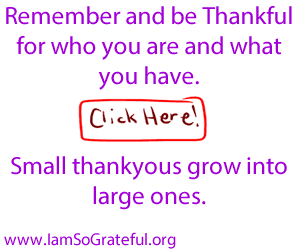
The Real Cure for Depression
Thursday 11 June 2009
Article: 7,965 chars
In response to the recent article on Depression a big thank you goes to Melissa for sending in this article called 'The Real Cure for Depression' written by Bob Murray and Alicia Fortinberry.
New studies show that antidepressants and talk therapy don't do the trick. Here's what does.
Depression is just about the loneliest experience in the world. One of the main reasons I get so much satisfaction from helping people with depression, as my husband Bob and I have for over 20 years, is that I suffered so much from this illness. And, because of that, so of course did Bob. It was especially painful for him, as a psychologist, to feel helpless to cure my so called "treatment resistant depression."
Learn more about combination herbal therapies that include nutrients and herbs like Valerian Root, St. John's Wort, Rhodiola Rosea, 5-HTP, and SAMe. Natural Alternatives for stress, occasional anxiety, mood balance, focus and sleep difficulties.
My depression spurred us both on to develop new and effective methods for healing depression. What we found as we studied depression in our clients and emerging research about how the brain actually works, is that the public is so misinformed it's almost a con.
How I wish I had had the real scoop on depression in my teens, when I had all the signs: sleep problems, radical weight fluctuations, isolation from other students, lack of ability to enjoy myself, panic attacks, but mostly the sense that something was terribly, terribly wrong. And since no one could help, that something was wrong with me.
Now, I'm pleased to say: no more! Now I have the satisfaction of reaching out to others who suffer from depression and emotional pain because I've been there. Often I'm able to guide them out of the deep dark hole they fear they are sentenced to for life. Every time this happens it feels as if I've somehow reached back into my own past to pull another part of myself into the light.
Depression facts
So let me share with you the real facts about depression. First of all, clinical depression affects 15% of the population, and a third of all women. One of the reasons twice as many women as men suffer depression and anxiety, according to researchers at University College, London, is that women's traditional roles (taking care of the household, family finances and children) are under-valued. Many of us wind up feeling guilty and exhausted as we try (or have to) become achievers at work and/or lonely and frustrated at home. Men are also under pressure in an effort to balance family life with an increasingly competitive workplace, and are particularly vulnerable to depressive episodes after redundancy and retirement. The burden on the often isolated nuclear family is enormous, with little time left for the kids or relationships with friends and even extended family.
It is little wonder depression is the second biggest killer behind heart disease (itself a contributory factor in depression), and is increasing a staggering 23% per year in children, according to one Harvard University study.
The real tragedy is the lack of effective available treatments, with many people led to believe that pills, or herbs or diet will do the trick. The truth is that antidepressants work for less than 50% of depressed people, and are about as effective as sugar pills. The FDA only recommends taking them for short periods. (This does not mean you should stop taking them abruptly, certainly not without medical supervision. Or at all, if they are helping you.) Even natural remedies, such as St. John's Wort, while they may not have nasty side effects, don't offer a long-term cure.
Savvy psychiatrics suggest therapy along with medication, but here's the rub. The standard form of psychotherapy for depression, cognitive behavioral therapy, has a relapse rate of up to 80%, according to University of Washington researchers.
Depression in the brain
The problem with these treatments is that they don't reflect the latest research, and fail to address the underlying causes of depression. Childhood trauma is now recognized as the primary cause of clinical depression. This can include everything from outright abuse to criticism, lack of attention, unclear boundaries, divorce, conflict within the household, neighbourhood or even violence on TV.
This trauma inhibits the natural development of the brain, leaving several crucial areas, including the frontal cortex, hippocampus and amygdale, from functioning properly. Emotions are exaggerated and often inappropriate, decisions become difficult and depression and anxiety result.
Researchers are now viewing depression as a physical disability — just like having a spinal injury. It's a structural problem in the brain caused by an "accident," or trauma. That's why you cannot just talk your way out of it, nor find lasting relief by simply treating the neurochemical imbalance — itself a symptom of the brain's misdevelopment.
The relationship solution
But there is a cure! The "accidents" which lead to depression are almost always dysfunctional relationships. As adults we tend to seek out and recreate the most difficult relationship patterns fron childhood, and so the damage is perpetuated, reinforcing our vulnerability to depression.
The good news is that certain kinds of supportive and trust-worthy relationships can actually undo the damage of poor relationships. The brain is capable of growing new cells in a process called neurogenesis. But to do so the brain needs a safe and emotionally healthy environment, free from the trauma of criticism, uncertainty, abandonment and abuse.
We believe that each person can create a relationship environment that will allow the injured brain to heal. Needs not met in childhood by our parents and significant adults must be met by our partner, friends, family and workmates. If you were threatened as a child you may need people to ask for permission before giving you a hug. Or you may need them to be very careful not to criticize you, because that may spark fears of abandonment and trigger a depressed mood. If a boss constantly points out your faults and not your achievements, you may fear being fired. Don't be afraid to ask him to give you positive feedback — and specify how often — and to let him know the conditions you require to work at your best.
Bringing people into the process of healing your depression can start with something as simple as asking a friend to join you for a weekly walk in the park. Not only will the exercise elevate your mood, but creating shared rituals will strengthen your relationship. Make this get-together an opportunity to let them know your needs of them — and ask them what they need from you.
In our Uplift Program and our book Creating Optimism: A Proven, Seven-Step Program for Overcoming Depression we help people pinpoint their vital needs, and access the antidepressant power of relationships.
The important thing to remember is that depression is not a failure on your part, and you can overcome it. The real healing will begin when you change the basis of your relationships and build a healing support system around you that will help keep you depression-free for life. You'll be amazed at the outcome.
 Creating Optimism - A Proven 7-step Program for Overcoming Depression
Creating Optimism - A Proven 7-step Program for Overcoming Depression
by Bob Murray PhD and Alicia Fortinberry.
This is one of the best books I have read, with much of the book almost reading my mind. This is certainly one of the best value books you will ever get to read giving you an overall picture on what is really happening to you in this world we live in.
Email this article to a friend
For a wonderful website to express and view comments of gratitude visit: www.IamSoGrateful.org
Alternatively, contribute your experience and knowledge by leaving a comment below or send your story in to be published.
What you say may just help another so go ahead share, and let us all be enlightened together —
Your Comments:
+Add a Comment






